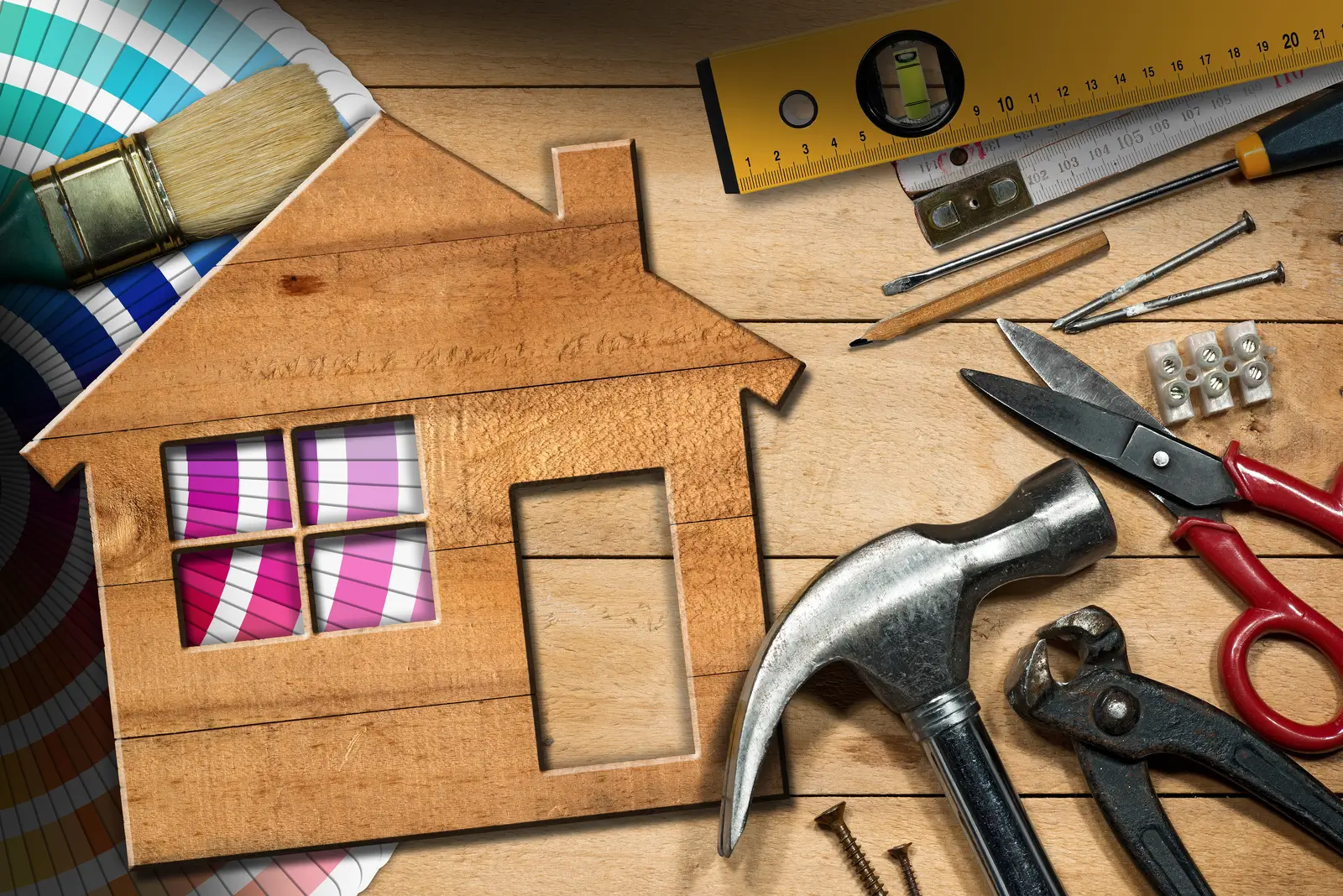Rental property maintenance is essential for protecting property value and ensuring a steady rental income, making it vital for property owners to understand the costs and expenses involved. That’s why mastering budgeting is important for property owners. Effective budgeting ensures your investment property remains profitable.
Relying on an experienced property management company like RiverTown Realty to handle every maintenance aspect can also be a smart move if you want professional, accurate maintenance and record-keeping. By implementing a well-planned strategy, you can minimize unforeseen expenses and maintain tenant satisfaction.
Continue reading to learn more about effectively budgeting for rental property maintenance.
Key Takeaways
- Budget 1–3 percent of property value annually to cover routine and unexpected maintenance costs.
- Preventive maintenance reduces long-term expenses and keeps tenants satisfied.
- Track routine maintenance tasks to refine budgets and prevent unexpected expenses.
- Balance DIY and professional help for cost-effective, high-quality property upkeep.
Understanding Rental Property Maintenance in Memphis
Regular upkeep improves tenant retention by keeping the property attractive and functional. This means staying ahead of common issues like plumbing, HVAC, and electrical systems is essential.
A strategic maintenance plan with routine inspections can cut costs and protect property value. It also reduces tenant complaints by preventing problems before they escalate. Always clarify what the tenant's responsibility is to prevent disputes.
Using a yearly maintenance calendar, you can track work orders for budget control. An effective property maintenance budget also addresses minor issues promptly, builds relationships with reliable vendors for better rates, and finances large repairs to spread out expenses. Delaying maintenance can lead to tenant dissatisfaction and higher tenant turnover.
Estimating Rental Property Maintenance Costs
Maintenance is a key component of overall operating expenses for rental properties. Accurately estimating maintenance costs is crucial for landlords to create realistic budgets and avoid unexpected expenses. For example, older or larger properties often experience higher costs for repairs and upkeep.
Local building codes and regulations set the baseline for property upkeep, influencing what needs to be maintained and how often. Costs can also be estimated per square foot for a more precise budget.
Here are key factors affecting maintenance costs:
- Age: Older homes have more frequent repairs due to aging systems.
- Climate: Hot, humid Memphis summers can increase HVAC and exterior maintenance needs.
- Size: Larger properties require more cleaning, landscaping, and upkeep.
- HOA Coverage: HOA fees may reduce exterior costs, but not interior repairs.
- Materials: Premium finishes cost more to repair or replace.
- Tenant Behavior: Tenants who report issues early help lower repair costs.
Common Property Maintenance Costs
While actual expenses can vary depending on location, property type, and the extent of the work, the following figures provide a general idea of what landlords might expect to pay for common maintenance tasks:
- Roof Repairs: $250-$1,000
- Roof Replacement: $9,000-$18,000
- HVAC Tune-Up: $135-$250 (recommended twice a year)
- Plumbing Leak Fix: $200-$450
- Landscaping: $85-$150/month
- Interior Painting: Single room ($400-$600); whole home ($2,500-$5,000)
- Gutter Cleaning: One-story ($100-$250); multi-story ($250-$400)
- Power Washing: $200-$500
- Waste Management: $150
Budgeting for Maintenance Expenses
Properly budgeting for maintenance expenses helps prevent costly repairs and ensures steady rental income. Set aside a portion of the monthly rent after rent collection for maintenance expenses.
Reviewing your property’s past maintenance records can help you make more accurate budget forecasts. Historical maintenance data can help forecast future expenses accurately, reducing the risk of being caught off guard by repeat problems.
A Rule of Thumb for budgeting is to allocate 1–3 percent of the property’s value annually for maintenance.
For example:
Property Value | 1% Estimate | 2% Estimate | 3% Estimate |
$300,000 | $3,000 | $6,000 | $9,000 |
Based on this rule, you can start with the 1 percent rule as your baseline. Then, adjust upward to 2–3 percent if the property is older, larger, or if local costs are high. Track expenses over time, and refine your budget accuracy once you see actual spending patterns. A well-planned budget reduces unexpected costs from emergency repairs.
Prioritize Preventive Maintenance
Perform regular maintenance to prolong the life of HVAC systems, plumbing, and electrical components. A proactive maintenance strategy reduces costs and keeps tenants happy.
Identify recurring tasks to prevent wear and tear on the property, and schedule seasonal tasks like HVAC servicing, gutter cleaning, and landscaping to prevent weather-related issues. Key preventive services to budget for include the following:
- HVAC tune-ups (spring & fall): Include HVAC servicing in spring and fall to prevent breakdowns during extreme Memphis heat or cold.
- Gutter cleaning (1–2 times a year): Avoid water damage, mold, and structural issues.
- Drain & sewer checks (annual): Prevent backups that can exceed $2,000 in repairs.
- Landscaping & irrigation audits (monthly): Maintain curb appeal and meet local compliance requirements.
- Pest control (quarterly): Essential in warm climates like Memphis to prevent infestations.
- Roof & attic checks (annual): Detect early signs of leaks, insulation issues, or structural problems.
- Snow removal: Include snow removal in winter seasonal maintenance for safety and property protection.
Leveraging Tax Benefits
Significantly reduce the financial burden of maintaining your rental property. Many expenses qualify for tax deductions, including repairs, maintenance contracts, supplies, property management fees, professional fees, and certain utilities covered under the lease agreement.
Larger projects that qualify as capital improvements—such as roof replacements, electrical panel upgrades, or garage conversions—can be depreciated over time to spread out the tax savings. Another way to make the most of these opportunities is to time significant expenditures in tax years that maximize your benefits.
Ultimately, consulting a real estate tax professional can help ensure you take full advantage of every available deduction.
Handling Maintenance: DIY vs. Hiring Contractors
When it comes to handling maintenance, landlords must weigh the pros and cons of doing repairs themselves versus hiring contractors.
DIY repairs can save on labor costs, give you greater control over quality, and even provide an opportunity to develop valuable skills. On the other hand, outsourcing to reliable Memphis contractors offers professional-quality work, faster turnaround times, and dependable emergency maintenance response.
Cost considerations play a significant role in both approaches, so it’s essential to compare expenses and long-term value. Many landlords use a balanced approach: handling small repairs themselves while leaving complex tasks to property managers or contractors.
Regardless of your choice, always track your maintenance spending to keep your budget in check and ensure the financial health of your rental property. Also, tracking past maintenance issues helps reduce future problems.
Outsourcing Maintenance to Property Managers
Outsourcing simplifies managing properties efficiently. These experienced pros handle scheduling repairs and help tenants submit maintenance requests easily. Property managers are especially helpful when managing multiple properties, coordinating with vendors, and streamlining tenant communication.
A property manager company can also assist in creating a comprehensive maintenance plan, estimating costs, and ensuring compliance with local laws and regulations. When paired with effective property management software, these services become even more streamlined, enabling streamlined task management and expense tracking.
Smart Maintenance Budgeting for Long-Term Success
Proper planning ensures the property's condition remains in top shape over time. By planning major repairs in 5–10 year cycles, you can avoid the financial strain of tackling large projects all at once.
Spreading out major expenses like roof replacements, HVAC upgrades, and exterior painting keeps your budget manageable and improves cash flow. It also provides a predictable financial outlook that safeguards your property and your bottom line.
Partner with RiverTown Realty to put this strategy into action and keep your investment in top shape. Contact us today for a free consultation!
FAQs
1. How much should I budget for rental property maintenance in Memphis?
A common rule of thumb is to set aside 1–3% of your property’s value annually for maintenance. For example, if your property is worth $300,000, that’s $3,000–$9,000 per year, depending on the property’s age, size, and local costs.
2. What are the most common maintenance expenses for landlords?
Typical costs include roof repairs ($250–$1,000), HVAC tune-ups ($135–$250 twice a year), plumbing leak fixes ($200–$450), landscaping ($85–$150/month), interior painting ($400–$600 per room), gutter cleaning ($100–$400), and power washing ($200–$500).
3. How can preventive maintenance help reduce costs?
Routine tasks like HVAC maintenance, annual drain checks, monthly landscaping, quarterly pest control, and yearly roof inspections can prevent costly emergencies and extend the life of your property’s systems and structure.
4. Should I handle maintenance myself or hire contractors?
It depends on the complexity of the task. DIY repairs can save on labor costs for small jobs, while hiring reliable Memphis contractors ensures professional-quality work and faster turnaround for complex or urgent repairs. Many landlords use a mix of both approaches.


